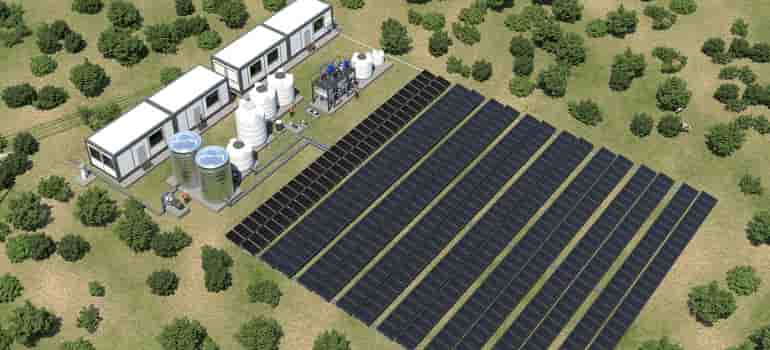
The Carlsberg Group’s Sustainability Report 2020 shows solid progress towards the targets set out in its Together Towards ZERO plan, stating its continued commitment to tackle the global challenges we face, together.
In a year dominated by the pandemic, Carlsberg reports a 7% decrease in relative carbon emissions across its total value chain – the beer-in-hand footprint – from 2015 to 2019, and across its breweries a 12% reduction in relative carbon emissions and 7% improvement in water efficiency since 2019.
The company in a statement said “We have collaborated with partners and suppliers across every step of the value chain – including raw ingredients, packaging and refrigeration – to identify, trial and roll out more sustainable solutions. This has resulted in a 7% reduction in our relative beer-in-hand footprint – our total value chain emissions – from 2015 to 2019. We are on track to achieve 15% by 2022 and 30% by 2030.”
“Our leadership in climate action has been acknowledged by the global environmental non-profit organisation CDP with a place on its prestigious “A List”. Recognising the increasing risk of climate change to businesses and communities across our regions, we have published our first disclosure according to the Task Force on Climate-related Financial Disclosures (TCFD) reporting framework in our Annual Report 2020. This builds on the foundation created in 2017, when we worked with the Science Based Targets initiative to become one of the first businesses to set targets aligned to the more ambitious goal of the Paris Climate Agreement, to limit global warming to 1.5°C.” said the firm.
Protecting shared water resources in priority areas: In 2020, Carlsberg launched a partnership with Desolenator in India to create 20,000 litres of water a day for a town of 4,000 people using the world’s first solar thermal sustainable water purification technology. And in Vietnam, partnered with local authorities to improve the infrastructure will bring fresh water to around 20,000 people.
Carlsberg said “Brewing with lower emissions and less water: A further three breweries achieved carbon neutrality in 2020, bringing the total to eight. And from 2019 we reduced carbon emissions per hl of beer produced at our breweries by 12% and water use by 7%. We are sharing and implementing best-practice efficiency measures across the Group and trialling innovative technology, such as the total water recovery plant at our Fredericia brewery in Denmark, which will make it world-class in water efficiency, reducing water use from 2.9 to 1.4 hl/hl.”
Supporting communities hit by the pandemic: In our markets across the world, we transformed brewery production lines to produce alcohol for hand sanitiser, donated equipment and alcohol-free beverages to support healthcare workers, and ran campaigns to support the hard-hit hospitality sector,” said the company.
In addition to corporate contributions to support people affected by COVID-19, Carlsberg teams around the world raised funds for local organisations, and the Carlsberg Foundation, New Carlsberg Foundation and Tuborg Foundation, donated a total of DKK 109m during the crisis to support research, arts, culture and civil society.
Cees t’ Hart, CEO, Carlsberg Group, says: “2020 was a challenging year for our business, our customers and our people all around the world. At Carlsberg, we continued our efforts to help communities in this challenging time, while working to reach our ambitious targets to cut carbon and water waste. We will not let COVID-19 throw us off course.
“We’re on track to meet our 2022 targets, and since 2015 we’ve reduced our brewery emissions by 39%, cut our beer-in-hand footprint by 7%, and brought down our water use by 18% for every hectolitre of beer produced.”
MORE HIGHLIGHTS ON THE WAY TOGETHER TOWARDS ZERO
- 12% reduction in carbon emissions per hl since 2019 (39% since 2015) on the way towards our 2030 target of ZERO carbon brewing by 2030.
- 7% reduction in beer-in-hand footprint (the total value chain) since 2015 on the way towards our 2030 target of a 30% reduction.
- 64% of electricity from renewables on the way towards our 2022 target of 100%.
- 8 carbon-neutral sites.
Towards ZERO water waste
- 7% improvement in water efficiency since 2019 (18% since 2015) on the way towards our 2030 target of 50%.
- Partnerships launched to protect shared water resources in India and Nepal on the way towards protecting shared water resources at all priority breweries.
Climate Samurai Members support independent journalism at a time when trusted storytelling, climate awareness and community engagement is more important than ever. We have small but strong editorial team that brings you uninfluenced and curated news that you can trust. To support truly independent journalism, please consider taking a subscription which is free like our thought.

